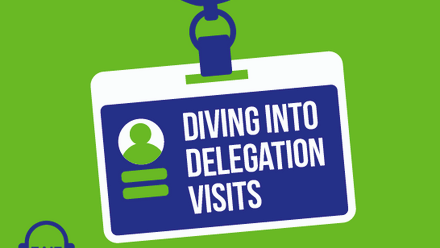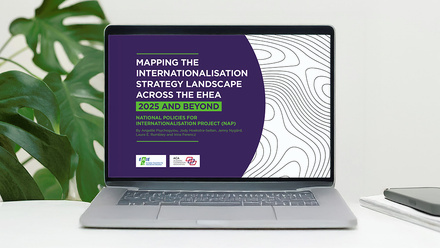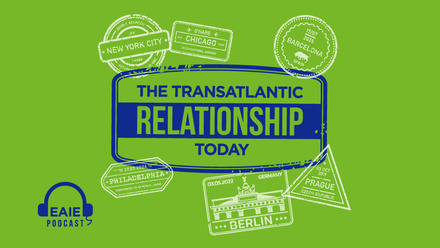Meeting industry demands: applied sciences in global cooperation

Employability is a crucial topic to address in higher education – and especially in academic cooperation with partners in the Global South. In December 2020, the annual Global Minds Conference brought together universities of applied sciences and arts to consider the theme of increased employability in the Global South.
Global Minds is a Belgian programme aimed at stimulating capacity-building in development cooperation at Flemish institutions. It brings together 13 Flemish universities of applied sciences and arts to network and cooperate with higher education institutions in the Global South. In short, it offers support, guidelines, recommendations and demands for the individual Flemish institutions to help them develop meaningful cooperation with Global South partners.
Practice-oriented education
The Global Minds Conference is an opportunity to display projects and fieldwork and to get inspired, share knowledge and experiences, and start new projects. The 2020 theme of increased employability in the Global South reflected the goal to increase the relevance of higher education in the South and help to close the skills gap between higher education and local labour markets.
Alongside research and education, universities of applied sciences and arts have a third mission, which can be summarised as technology transfer and innovation, continuous education and social engagement. They carry out their missions in close connection to the labour market, educating students with both theoretical knowledge and practical skills, which contributes to the professional employability of graduates.
Engineering curricula cannot be copied from the West or from China but need to be adapted to local demands while adhering to global standards
In this way, the Flemish model relates closely to the German Fachhochschule. Both Germany and Belgium have strong technology-oriented industries that need highly skilled professionals. Universities of applied sciences and arts help to deliver leading-edge competence to companies instead of keeping it in the academic domain. This specific form of higher education is becoming attractive and relevant for other countries in which there is a need for highly-trained professionals as well as academically trained personnel. This opens a window of opportunity for cooperating more on practice-oriented education and building partnerships both internationally and with industry.
Engineering in east Africa
The Applied Curricula in Technology for East Africa project, or ACTEA, is an initiative that was highlighted at the conference. Funded by Erasmus+, it aims to fulfil specific needs in engineering in East Africa and provide better skills matching. It delivers course material in two specialisations – computer-aided manufacturing technology, and electrical engineering and automation – and aims to establish technological laboratories and learning tools, as well as giving staff and students additional training. Science, technology, engineering and maths education is highly relevant in East Africa, where producing added value is a way of improving the standard of life.
There is a high demand for technicians from investors, non-governmental organisations and the emerging middle class in Ethiopia, Uganda and Tanzania, supported by legislative attempts to increase local employment. To cope with this demand, there is a need for skilled people, trained in relevant engineering trades, but they are hard to find. This is due to the strong theoretical approach in universities instead of practice-oriented, competence-based teaching, and also to the skills mismatch of graduates compared with the needs of the labour market.
Our investigations in Tanzania, Uganda and Ethiopia also showed that – unlike in European Union countries – the job profile of engineers is not focused on product development but on services, maintenance and local processes. Different from how things work in the corporate R&D centres of the West, a local process – such as processing cassava – has to be understood before machines are built for it. Large-scale production engineering of the kind seen in China is not an educational goal either as African countries do not yet have a large industrial manufacturing base. Engineering curricula cannot be copied from the West or from China but need to be adapted to local demands while adhering to global standards in technology competence. Several East African universities understand the limitations in their engineering curricula and teaching facilities, and efforts are under way to make improvements.
Shared responsibility
We should be clear that ACTEA is not a development project but a capacity building project, in which peer-to-peer cooperation for course development, learning and teaching is the core activity. The responsibility for curriculum development is always shared between EU-based higher education institutions and one or two target institutions.
EU countries bring in the knowledge in streamlining courses according to the Bologna Process, suggest course content and deliver input on the equipment. The target institutions develop the courses and adapt them to local needs. The target universities also share new industrial equipment with external stakeholders, consolidate triple-helix cooperation between academics, industry and local government and disseminate the results to a broader audience. They enter into much broader cooperation with the local economy and society than is common for academic institutions. The final goal is sustained and deepened academic cooperation between all partners, fostering internationalisation and inclusivity in the global technology community.
During the COVID-19 pandemic, international cooperation on the project has become more difficult, as having stable internet at home is a luxury that many of our partners do not possess. In addition to closed campuses, a domestic war started in Ethiopia, affecting the participation of one of our active partners. These are real challenges, causing delays, but the consortium still manages to produce the necessary outputs and outcomes. On the other hand, going digital almost overnight has introduced interesting opportunities. With the need for distance teaching, learning and assessment, the path is wide open for handing out micro-degrees and working together on joint degrees, courses and projects. These elements will no doubt be implemented in the next iteration of Erasmus+.






